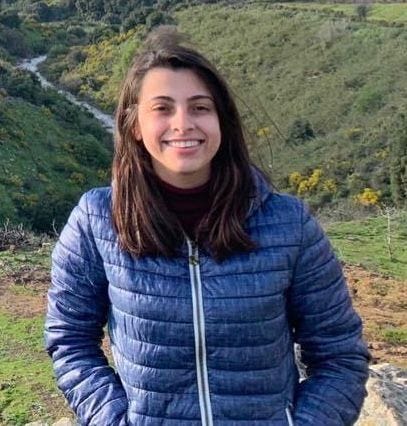Creating Therapeutic Spaces Amid Conflict
The therapeutic world often seeks neutrality, framing the therapy room as a place untouched by the social, cultural, and political realities outside its walls. But can such a space truly exist in times of chaos and unimaginable destruction? This is one of the critical questions Noor Abo Ras, a psychologist in clinical training, mental health project coordinator at the School for Peace Neve Shalom, and group facilitator, confronts in a deeply insightful exploration of therapy's role in the face of crisis.
Noor’s blog post describes the origins of an extraordinary initiative born from the harsh realities of conflict and the pressing need to rethink how therapeutic spaces interact with the world around them. Through her experiences and reflections, Noor addresses the intersection of therapy and the political-cultural context, challenging conventional notions of professional neutrality in a setting that demands moral engagement. Her voice stands as both a compassionate call and a thought-provoking challenge to build spaces that can hold pain, complexity, and ambiguity while responding sincerely to the complicated reality outside their doors.
Below, Noor shares the story of the initiative's creation, offering an inspiring and deeply personal perspective on the urgent need to reimagine therapeutic spaces in a divided and turbulent world
The ongoing war and unprecedented destruction are shrinking not only the public space for critical discourse but also the therapeutic space. Spaces intended to hold pain, complexity, and ambiguity are becoming fragile and harmed themselves. The therapeutic space, which according to Western psychological theories is perceived as “sterile,” safe, and containing for every individual, is revealed to be a space that is not free from political and cultural context. In a reality where the fundamental and primary value of a person’s right to live and exist is violated, it becomes difficult to sustain an intermediate space that allows for internal inquiry and honest dialogue between different parts of the self.
Precisely out of this crisis emerges the need to recognize that the therapeutic space is not detached from context — and to fight for the existence of a therapeutic space that communicates with reality, one that is capable of holding awareness of reality, moral complexity, vulnerability, and conflict.
During my academic studies in Israeli institutions, it was evident that the political-cultural context was pushed to the margins of the curriculum. Perhaps out of fear and apprehension about opening topics that may be difficult to digest and discuss, and perhaps as part of broader processes of individualization in society. But how can we claim professional neutrality in the midst of an assault on the very existence of human beings? How can we continue to provide therapy without taking a clear moral stance — as individuals and as a therapeutic community — in the face of atrocities and extermination? How can we offer a safe space to our clients if we do not also act in the public sphere to ensure the basic conditions for a life of dignity?
From these questions, a unique group has been born, now opening at the initiative of the School for Peace and the Ma’an Center. The group is intended for therapists — Jewish and Palestinian — who seek to think together about the impact of the political context on the therapeutic stance, about our role as those who accompany psychological processes during a time of existential crisis, and about the possibility of creating therapeutic spaces that do not close their eyes to a reality of oppression and violence, but rather respond to it in a sincere, moral, and multilayered way.




